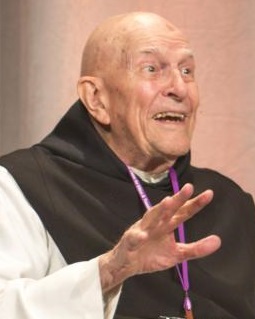|
Interspirituality
Interspirituality, also known as interspiritual, is an Interfaith dialogue, interfaith concept where a diversity of Spirituality, spiritual practices are embraced for common respect for the individual and shared aspects across a variety of spiritual paths. History Interspirituality comes from the work of Wayne Teasdale, who developed this term to reflect commonalities between religious traditions, specifically those that are spiritual in nature. These commonalities across religious practices do not erase differences in beliefs, rather they build community and sharing across practices, leading to the ultimate goal of more human responsibility to one another and the planet as a whole. At its core, this is an "assimilation of insights, values, and spiritual practices" drawn from many different traditions that can be applied to one's own life to further personal, spiritual development. Critique While interspirituality is involved with common spiritual practices that, these are no ... [...More Info...] [...Related Items...] OR: [Wikipedia] [Google] [Baidu] |
Spirituality
The meaning of ''spirituality'' has developed and expanded over time, and various meanings can be found alongside each other. Traditionally, spirituality referred to a religious process of re-formation which "aims to recover the original shape of man", oriented at "the image of God" as exemplified by the founders and sacred texts of the religions of the world. The term was used within early Christianity to refer to a life oriented toward the Holy Spirit and broadened during the Late Middle Ages to include mental aspects of life. In modern times, the term both spread to other religious traditions and broadened to refer to a wider range of experiences, including a range of esoteric and religious traditions. Modern usages tend to refer to a subjective experience of a sacred dimension and the "deepest values and meanings by which people live", often in a context separate from organized religious institutions. This may involve belief in a supernatural realm beyond the ordinarily o ... [...More Info...] [...Related Items...] OR: [Wikipedia] [Google] [Baidu] |
Interfaith Dialogue
Interfaith dialogue refers to cooperative, constructive, and positive interaction between people of different religious traditions (i.e. "faiths") and/or spiritual or humanistic beliefs, at both the individual and institutional levels. It is distinct from syncretism or alternative religion, in that dialogue often involves promoting understanding between different religions or beliefs to increase acceptance of others, rather than to synthesize new beliefs. The Archdiocese of Chicago's Office for Ecumenical and Interreligious Affairs defines "the difference between ecumenical, interfaith, and interreligious relations", as follows: *"ecumenical" as "relations and prayer with other Christians", *"interfaith" as "relations with members of the ' Abrahamic faiths' (Jewish, Muslim and Christian traditions)," and *"interreligious" as "relations with other religions, such as Hinduism and Buddhism". Some interfaith dialogues have more recently adopted the name interbelief dialogue, [...More Info...] [...Related Items...] OR: [Wikipedia] [Google] [Baidu] |
Wayne Teasdale
Wayne Robert Teasdale (16 January 1945 – 20 October 2004) was a Catholic monk, author and teacher from Connecticut, best known as an energetic proponent of mutual understanding between the world's religions, for an interfaith dialogue which he termed "interspirituality". He was also an active campaigner on issues of social justice Social justice is justice in terms of the distribution of wealth, Equal opportunity, opportunities, and Social privilege, privileges within a society. In Western Civilization, Western and Culture of Asia, Asian cultures, the concept of social .... Publications Books *''Essays in Mysticism: Explorations into Contemplative Experience'', Foreword by George A. Maloney (Liturgical Publications/Sunday Publications 1982) *''Towards a Christian Vedanta: The Encounter of Hinduism and Christianity according to Bede Griffiths'' (Asian Trading Corporation 1987) Developed from his dissertation at Fordham University. *''The Mystic Heart: Discovering a Univers ... [...More Info...] [...Related Items...] OR: [Wikipedia] [Google] [Baidu] |
Thomas Keating
Thomas Keating, O.C.S.O. (March 7, 1923 – October 25, 2018) was an American Catholic monk and priest of the Order of Cistercians of the Strict Observance (also known as Trappists). Keating was known as one of the principal developers of Centering Prayer, a contemporary method of contemplative prayer that emerged from St. Joseph's Abbey, Spencer, Massachusetts. Life Keating was born in New York City in March 1923 and attended Deerfield Academy, Yale University, and Fordham University. In 1984 Keating, along with Gustave Reininger and Edward Bednar, co-founded Contemplative Outreach, Ltd., an international and ecumenical spiritual network that teaches the practice of Centering Prayer and ''Lectio Divina'', a method of prayer drawn from the Christian contemplative tradition. Contemplative Outreach provides a support system for those on the contemplative path through a wide variety of resources, workshops, and retreats. Keating died at St. Joseph's Abbey, Spencer, Massachus ... [...More Info...] [...Related Items...] OR: [Wikipedia] [Google] [Baidu] |


